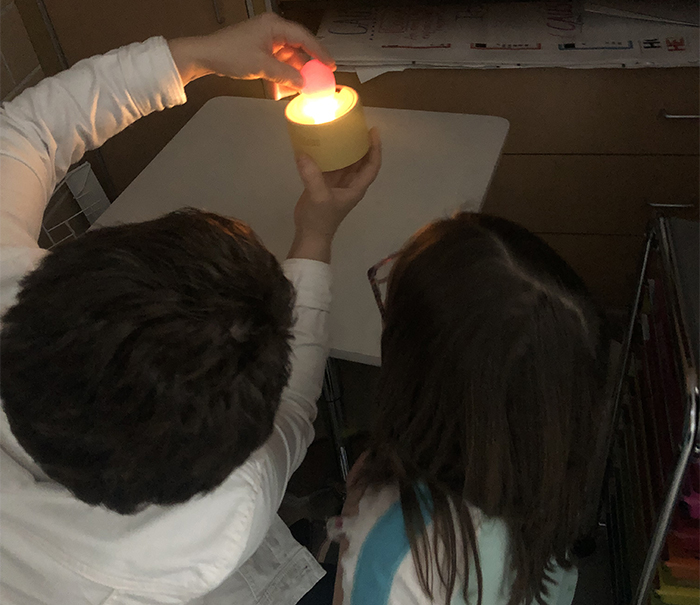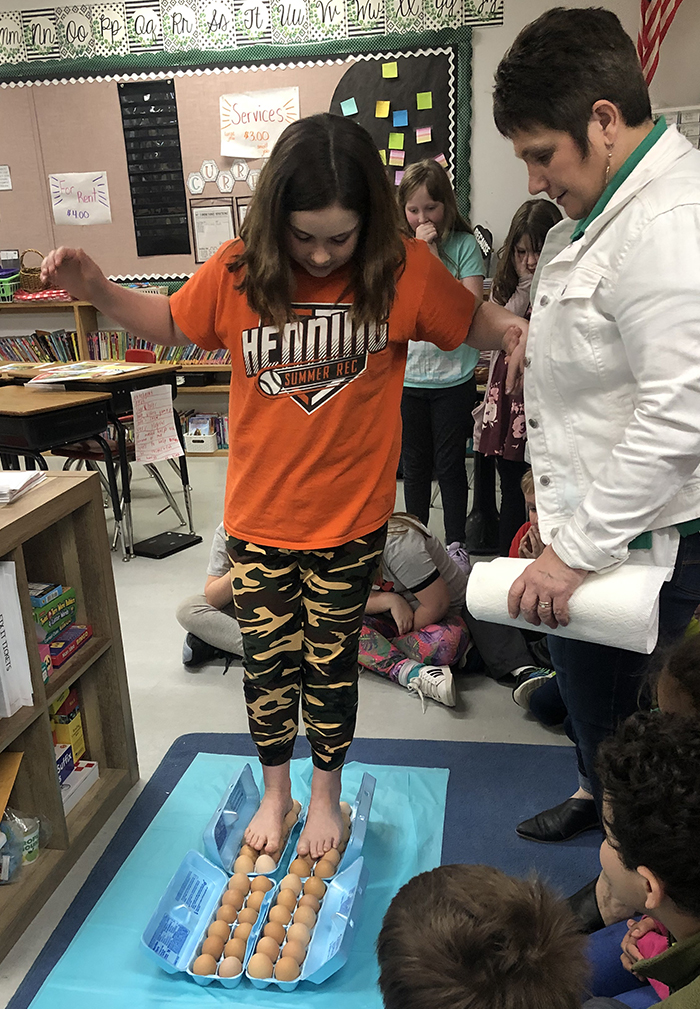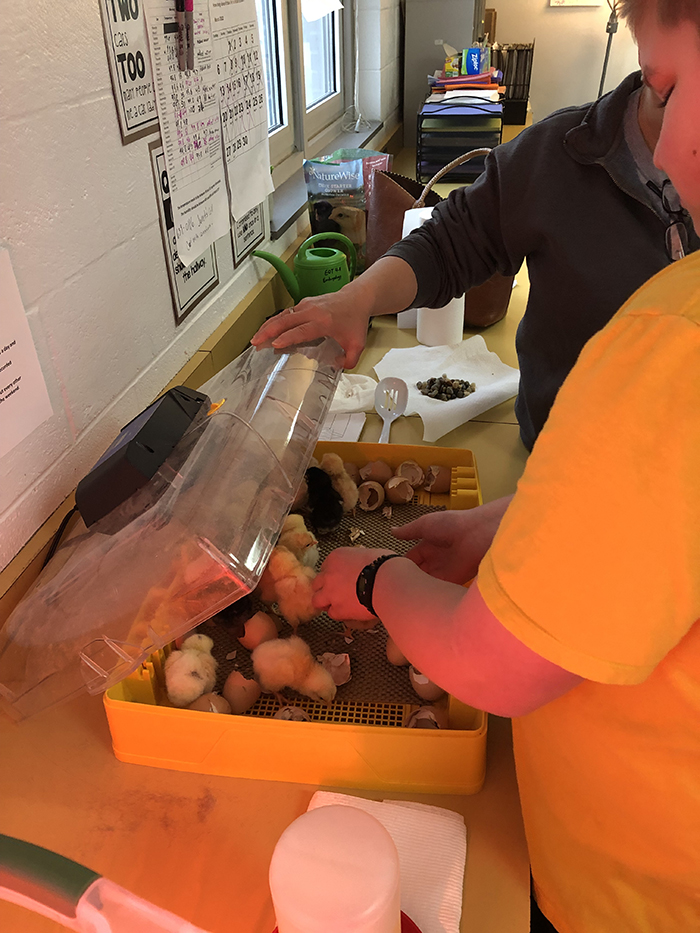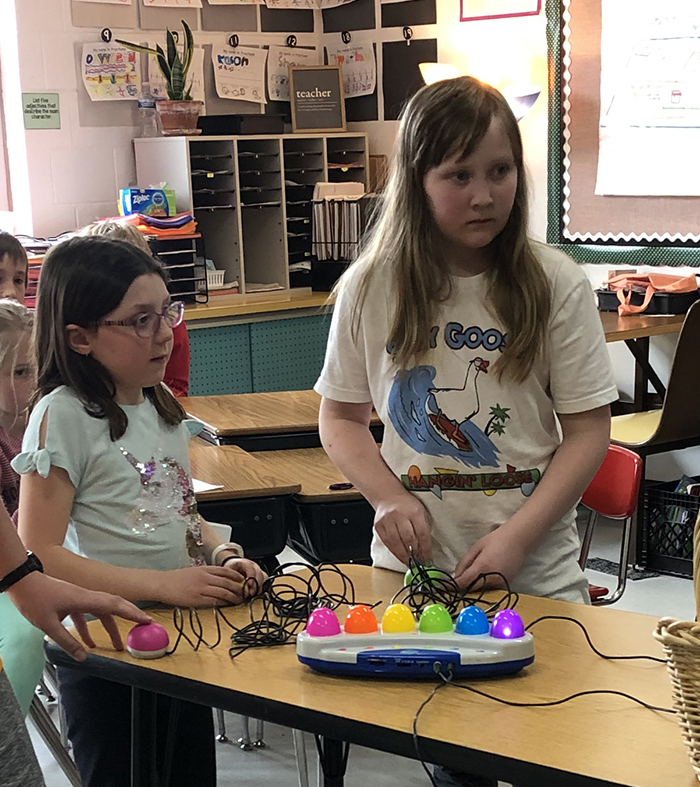A hatching good lesson at school
News | Published on April 6, 2022 at 10:59am EDT | Author: Chad Koenen
0Henning third graders partner with Extension office for new egg class

Students in Kala Mills’ third grade class at Henning School had a special egg and chick lesson over the course of the past month. As part of the lesson they were able to candle eggs.
By Chad Koenen
Publisher
Egg-celent, egg-citing and egg-tastic. No matter the eggy saying, Henning School third graders had a chirping good time as they received a visit from nearly two dozen feathery guests on Monday morning.
As part of a new partnership between the East Otter Tail Extension office and the Henning School, students have spent the past month waiting patiently for 30 eggs to hatch in the back of Kala Mills’ third grade classroom. Their hard work paid off, as approximately two dozen eggs hatched from March 27-28.
“After exactly 20 days of being in the incubator, the eggs began to hatch on a Sunday night,” said Mills. “When I arrived in the morning on Monday, the sounds of chirping could be heard throughout the classroom.”

Since not all of the eggs hatched at the same time, students were able to see first-hand how baby chicks can peck through their shell.
“Often throughout the day, you would hear a student shout ‘I can see one pecked a hole,’” said Mills. “It geared us up to be on the lookout for when it was ready to hatch.”
Once all of the eggs hatched the students were able to hold the chicks as they transferred them from the incubator to the brooder. They were also able to see them eat and hold them for the first time.
“On Tuesday morning, the most exciting day yet, was when students were each able to hold a chick, dip its beak into the water bowl, and place it into the brooder. The joy on students’ faces to see them hold a baby chick was a memorable moment for me. Some were hesitant, and some jumped right at the opportunity,” said Mills.

This is the first year that third grade students at Henning School participated in the chick hatching program. At the beginning of the school year, Mills received an email from the East Otter Tail 4-H Extension office. The group asked if she would be interested in bringing their embryology class into the classroom for students after the class was piloted in a few nearby schools over the years.
Though she was excited about the opportunity to bring the embryology class to her students, Mills said she was nervous for the opportunity as she was inexperienced in caring for eggs and chicks.
However, she said the entire program could not have went any better as Janet Malone, of the Extension office, came into the classroom each Monday to teach the students about eggs. She also provided all of the necessary tools like an incubator, brooder and food to make the project a success. Along the way she taught the students about how to care for the eggs and chicks.
“Each week we had a new lesson about eggs, embryos, breeds, and how to properly care for our chicks. Each lesson followed with an engaging science experiment.”
Kala Mills, third grade teacher at Henning School

The students shared some of the favorite moments of the lesson, which included putting the egg in corn syrup, being surprised the eggs hatched, how fluffy the chicks were when they hatched and how quickly the baby chicks learned to eat and drink.
The chicks didn’t stay in the classroom for long. Last week families who volunteered to care for some of the chicks took anywhere from 4-5 of them from the classroom to their home.
“We have some pretty excited families that will be taking the chicks to their home. A permission form was given to all students, and those who can properly care for the chicks with all the right tools will take some chicks home,” said Mills.

